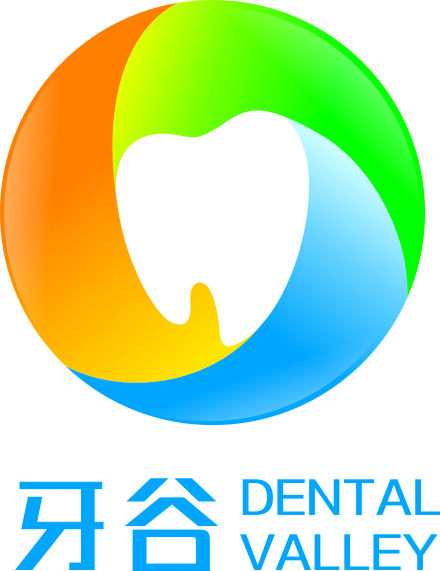Taking care of our mouths isn't something we do just once in a while. Different stages of life bring different dental problems. Think about it this way: little kids dealing with teething pain versus older adults who might need dentures later on. Good dental habits matter throughout all these phases. But let's face it, some people really struggle more than others when it comes to keeping their teeth healthy. Kids often don't understand why brushing matters until they actually feel that cavity hurting. Seniors may find it harder to reach back molars or deal with dry mouth issues from medications. These groups typically need extra help figuring out what works best for them personally.
Promoting oral hygiene among these groups is not only essential for preventing tooth decay and gum disease, but also crucial for maintaining overall health, comfort, and self-confidence. But how can caregivers, dental professionals, and families best approach the unique needs of young and elderly individuals?
Establishing Good Habits in Children
Make Brushing Fun and Routine
For young children, brushing can easily feel like a chore. Making it enjoyable and consistent is the key. Use colorful toothbrushes, flavored toothpaste, and fun timers or songs to encourage at least two minutes of brushing twice a day.
Parents should supervise brushing until children have the dexterity to do it properly on their ownâusually around age 6 to 8. This daily habit lays the foundation for a lifetime of strong oral hygiene practices.
Introduce Flossing and Mouth Rinsing Early
Many parents wait too long to teach flossing. Once two teeth touch, flossing becomes necessary to remove plaque between teeth where brushes can't reach. Using kid-friendly flossers can simplify the process.
As children grow, introducing alcohol-free mouth rinses can help kill bacteria and reinforce the importance of a complete oral care routine. Early education ensures children view these habits as non-negotiable rather than optional.
Preventive Care for Children
Regular Dental Checkups
Children should visit the dentist within six months of the first tooth eruption, and then every six months afterward. These visits not only monitor development and spot early issues but also normalize the dental environment, reducing fear or anxiety.
Routine cleanings, fluoride treatments, and sealants are all part of effective pediatric oral hygiene management.
Nutrition and Tooth Health
What children eat significantly impacts their oral hygiene. Limiting sugary snacks, acidic beverages, and sticky candies helps prevent decay. Encourage snacks like cheese, yogurt, crunchy fruits, and vegetables that support tooth strength and cleanliness.
Educating both children and parents on tooth-friendly foods can minimize risks and reinforce healthy lifestyle habits.

Adapting Oral Hygiene for Seniors
Addressing Mobility and Dexterity Challenges
As we age, brushing and flossing may become difficult due to arthritis, tremors, or cognitive decline. Seniors may benefit from electric toothbrushes with large, ergonomic handles or water flossers that require less manual dexterity.
Caregivers and family members should monitor and assist as needed, ensuring daily oral hygiene tasks are still completed effectively and comfortably.
Managing Dry Mouth and Medication Effects
Many seniors take medications that reduce saliva production, leading to dry mouthâa condition that increases the risk of cavities and infections. Encourage increased water intake, the use of sugar-free lozenges, and possibly saliva substitutes to combat dryness.
A dentist may recommend specific toothpaste or rinses to balance pH levels and protect the mouth's natural defenses.
Dental Visits and Oral Health Maintenance for Seniors
Maintain Regular Professional Care
Routine dental visits remain important, even for seniors with dentures or partial teeth. Cleanings, gum checks, and oral cancer screenings should be part of ongoing care. Untreated dental issues can escalate quickly and affect general health, including heart conditions and diabetes.
If mobility is a challenge, seek out clinics that offer in-home services or senior-friendly facilities.
Caring for Dentures and Implants
Good oral hygiene doesnât stop at natural teeth. Dentures require daily cleaning to remove plaque and bacteria. Seniors should brush dentures with non-abrasive cleaners and soak them overnight. Mouth tissues also need to be brushed and massaged to maintain circulation and reduce infection risk.
For those with dental implants, brushing, flossing, and regular checkups are still essential to avoid peri-implantitis and ensure long-term success.
Building a Supportive Environment
Involve Family and Caregivers
Whether itâs children learning how to brush or seniors needing reminders, caregivers play a central role. Establishing routines, offering encouragement, and monitoring progress make all the difference.
Using charts, visual aids, or reminder alarms can keep everyone on track, especially in settings like assisted living or large households.
Leverage Technology and Education
From brushing apps for kids to medication management tools for seniors, technology can support daily oral hygiene practices. Online resources, dental animations, and virtual consultations make education accessible and engaging for all ages.
Community workshops, school programs, and senior centers can also promote awareness and reinforce the importance of oral health in everyday life.
Conclusion â A Lifelong Commitment to Oral Hygiene
Maintaining good oral hygiene is not a one-size-fits-all approach. Children and seniors require unique care plans tailored to their physical, cognitive, and emotional needs. By starting early, adapting to limitations, and seeking professional guidance, we can protect the smiles of the youngest and oldest members of our families.
With empathy, education, and consistency, promoting oral hygiene becomes not only achievable but empoweringâno matter the age.
FAQ
What is the best toothbrush for children?
Soft-bristled brushes with small heads are ideal. Electric brushes with timers can also encourage better brushing habits.
How can I help my elderly parent maintain oral hygiene?
Provide them with ergonomic toothbrushes, assist in daily brushing if needed, and ensure regular dental checkups. Look out for signs of dry mouth or gum discomfort.
At what age should a child start flossing?
Flossing should begin as soon as two teeth touch. Parents should assist until children develop the motor skills to do it independently.
How does poor oral hygiene affect overall health in seniors?
It can contribute to infections, poor nutrition, and systemic issues like cardiovascular disease. Regular oral care helps maintain overall wellness.

